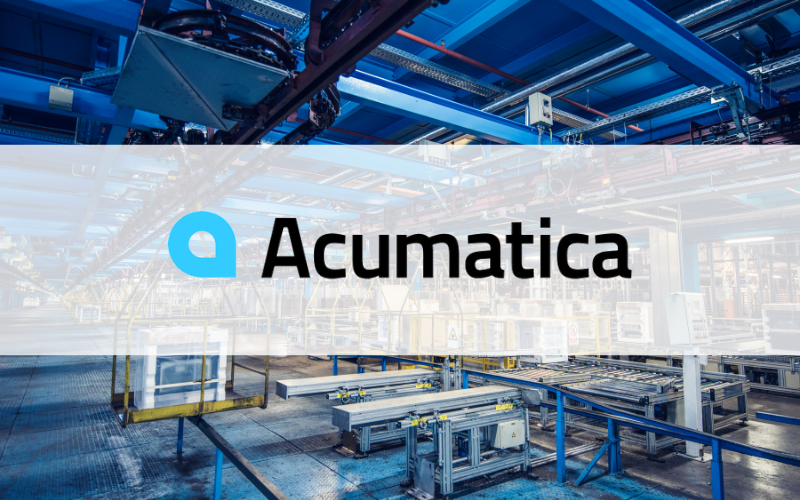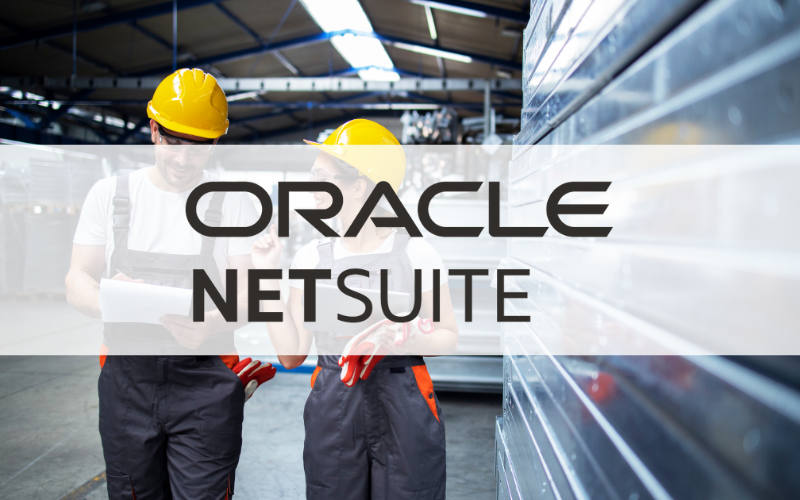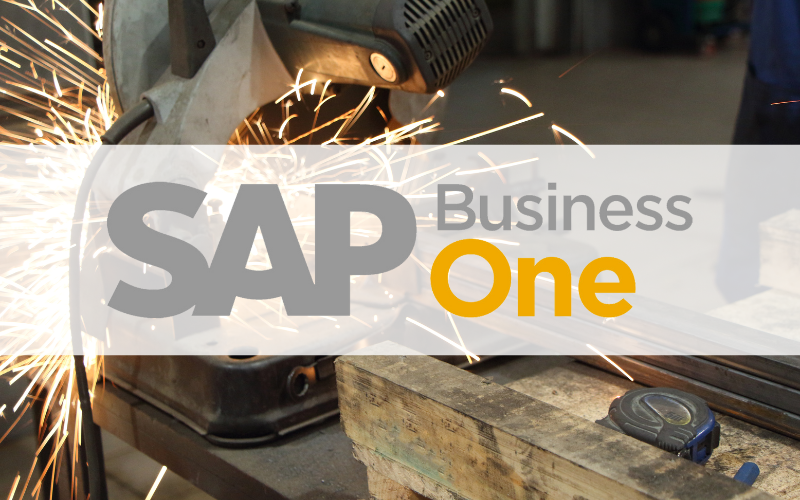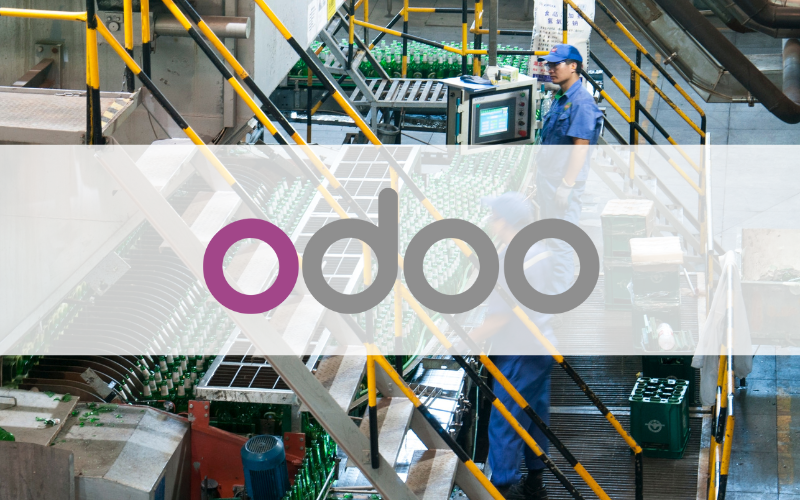Microsoft Dynamics 365 Business Central vs. Top ERP Solutions

After doing a lot of research into the Top Cloud ERP systems for manufacturers, we found that Acumatica, Microsoft Dynamics 365 Business Central, NetSuite, SAP Business One, and Odoo were the best ERPs for manufacturing companies. To read how we came to this conclusion, read our full article on the best ERP for small manufacturing company.
We then decided we wanted to compare each of these systems to Business Central. In this article, we’ll go over the key differences, pricing, and reviews for each of these systems compared to Business Central.
If you enjoy this article and would like to talk to Sabre Limited’s president Rob Jolliffe to chat about these concepts, you can book a one-on-one 30-minute call with him at https://calendly.com/robert-jolliffe/30min
Introduction to Business Central
Business Central is a favorite ERP for small to medium-sized manufacturers because of its comprehensive feature set, thousands of add-ons, customizability, and transparent pricing.
At Sabre Limited, we sell Business Central to manufacturing companies and manufacturing companies only. It’s safe to say that we have a bias because we and our customers love this product. That said, this article is written purely on research and interviews that we’ve conducted. We will try our best not to be opinionated and stay true to the facts.

Business Central vs. Acumatica
When comparing Business Central and the base version of Acumatica, there is no comparison. Whether getting Essentials or Premium licenses, Business Central has way more capabilities and features. We then must look at the Acumatica Manufacturing Edition to even attempt to compare these two ERP systems. And what is the result?
Acumatica Manufacturing Edition and Premium Licenses of Business Central have all the same features except that with Acumatica you would need the Multi-Entity & Intercompany Accounting Module for any manufacturing business that requires the ability to manage multiple companies in a single environment.
The pricing for Business Central is $70 /month per user for Essentials Licenses, $100 /month per user for Premium Licenses, and $8 /month per user for Team Member Licenses. It’s very straightforward.
Things are not as clear when it comes to Acumatica. One thing to note is that Acumatica does not charge on a per-user basis, instead uses a transaction volume for its pricing. That being said, the prices are not listed, and you will need to contact support for a demo and/or quote.
So how do the two systems score with user reviews?
- Business Central averages 4.18/ 5 stars
- Acumatica averages 4.36/ 5 stars
NOTE: Keep in mind that Business Central is sold through Value-Added Resellers (VARs), which can impact the product’s ratings. Often, these ratings reflect customers’ experiences with the partner rather than the ERP itself, potentially skewing the overall rating for Business Central.
To get an in-depth comparison of these two ERPs, read our article on Acumatica vs Dynamics 365 Business Central.

Business Central vs. NetSuite
Business Central Premium includes all manufacturing features without requiring extra modules, whereas NetSuite often needs additional modules for functions like Supply Chain, Project, Warehouse, and Field Service Management—driving up both costs and extending implementation timelines.
In terms of licensing, Business Central offers flexibility with monthly or annual contracts and allows businesses to scale licenses up or down during training. This approach helps avoid paying for unused licenses until go live.
A drawback of NetSuite is that, despite offering discounts for a minimum three-year term, you’re required to purchase all licenses upfront. For example, if you anticipate needing 50 full users after going live, you must buy all 50 licenses before training and implementation begin. If training and implementation take two years, you’ll be paying for licenses for users who aren’t yet trained or using the system.
NetSuite charges a $999 monthly base fee plus $99 per user, with costs rising for extra modules and services—often without clear pricing details from reps. While Business Central tends to have lower implementation costs for SMBs, both include cloud hosting, though NetSuite may charge extra for storage, updates, or premium support.
How do NetSuite and Business Central compare with user reviews?
- Business Central averages 4.18/ 5 stars
- NetSuite average 4.10/ 5 stars
Learn more about these two systems in our comprehensive article comparing NetSuite vs Business Central.

Business Central vs. SAP Business One
When we compared Business Central and SAP Business One, the one thing that stuck out was that SAP Business One is (by our definition) not a true cloud ERP.
Robert Jolliffe, President of Sabre Limited defines a cloud ERP as a solution that meets these four criteria:
- Runs natively on multiple devices
- Is server-less
- Offers seamless, automated upgrades
- Includes an App Store
By this standard, SAP Business One does not qualify as a cloud ERP. It lacks native mobile and tablet support and does not provide seamless, automated ERP upgrades.
As we have continuously said above, most manufacturers can run their entire operations with Business Central Premium licenses. The same cannot be said of SAP Business One. To obtain the same capabilities of Business Central, a company choosing SAP B1 would need two additional modules and an addon.
The pricing can also be complex with SAP Business One. Licenses cost $108 per user per month. However, there can be additional costs associated with cloud hosting.
How do the user reviews compare?
- Business Central averages 4.18/ 5 stars
- SAP Business One averages 4.26/ 5 stars
Find out more about how these two compare in our comparison article of SAP Business One vs Business Central for manufacturers.

Business Central vs. Odoo
Both Business Central and Odoo are open-source ERP systems. However, they differ in the ways that they work. When you buy Business Central, you’re buying into the Microsoft ecosystem. When an update is pushed, it should be pushed to your custom code as well.
Odoo’s open-source customizability can create a false sense of flexibility, as extensive modifications may prevent automatic upgrades to new versions, complicating long-term maintenance and breaking the expectation that cloud systems should upgrade automatically.
When it comes to pricing, Business Central generally has a higher upfront cost than Odoo. Odoo’s Standard plan starts at $31.10 per user/month, excluding hosting. For premium options, with hosting, Odoo costs $46.70 per user/month. Odoo charges for each additional module, whereas Business Central mainly adds costs for CRM.
So how do users rate these two ERPs?
- Business Central averages 4.18/ 5 stars
- Odoo averages 4.16/ 5 stars
Learn more about how these two compare in our comprehensive article, Business Central vs Odoo for manufacturing companies.
Top Cloud Manufacturing ERP Solutions for Small Businesses in 2024
In recent years, the manufacturing industry has witnessed a significant shift towards cloud-based ERP solutions. These systems offer enhanced flexibility, scalability, and accessibility, making them an ideal choice for small and medium-sized businesses (SMBs). Cloud ERPs allow companies to access real-time data, streamline operations, and reduce the need for costly on-premise hardware.
For SMB manufacturers, choosing the right cloud ERP is a critical decision.
For a deeper dive into these cloud-based ERP solutions and how they stack up, explore our full analysis:
Read the detailed comparison here: Manufacturing ERP for Small Business.

Recommendations
- Business Central: an excellent choice for small to medium-sized businesses looking for smooth integration with Microsoft products, an intuitive interface, and a licensing model based on the number of users.
- Acumatica: best for manufacturers that want to pay on a transactional basis instead of user count. It is best for companies that have fewer transactions and need more user licenses.
- NetSuite: best suited for larger manufacturing businesses with 250 or more employees, those requiring advanced functionality, or companies with staff already experienced with NetSuite who want to build on that expertise.
- SAP Business One: is a solid ERP choice for smaller manufacturers who need robust financial and inventory management but don’t necessarily require the full capabilities of a cloud-native solution.
- Odoo: best for very small manufacturing companies that do not foresee business development and growth in the near future. Odoo is fantastic for small companies that plan on staying small, but difficulties will arise once the organization starts to see more growth.
Conclusion
Choosing the right ERP solution can transform your manufacturing operations, aligning with your business’s specific needs and future growth plans. Microsoft Dynamics 365 Business Central offers a well-rounded solution for small to medium-sized manufacturers, particularly those already using Microsoft products.
For businesses with unique needs, other ERPs may provide a better match.
- Acumatica, for example, is ideal for companies that prefer transaction-based pricing rather than per-user fees, making it a cost-effective choice for manufacturers needing more user licenses but fewer transactions.
- NetSuite caters to larger manufacturers with over 250 employees who require advanced capabilities or have in-house expertise with NetSuite.
- For manufacturers focused on solid financial and inventory management but without the need for a fully cloud-native platform, SAP Business One is a dependable, traditional ERP option.
- Odoo works well for very small manufacturers with no immediate plans for growth. While it’s highly customizable and budget-friendly, scaling can become complex as the business expands.
Ultimately, each ERP has strengths suited to different types of manufacturers. By considering your unique operational needs and long-term goals, you can choose the ERP that best fits your business journey.
About Sabre Limited
At Sabre Limited, we are dedicated manufacturing ERP specialists, recognized among North America’s top ERP implementation partners for the manufacturing industry. Our commitment to clients sets us apart, offering fixed-fee pricing instead of the more common time-and-materials approach. This means you can count on predictable costs and a customer-first experience throughout your ERP journey.
If you enjoy this article and would like to talk to Sabre Limited’s president Rob Jolliffe to chat about these concepts, you can book a one-on-one 30-minute call with him at https://calendly.com/robert-jolliffe/30min
We bring deep expertise across various manufacturing sectors, including production manufacturing, job shop and project-based manufacturing, engineer-to-order and custom builds, architectural and industrial equipment manufacturing, and more.
Our specialized focus on these industries allows us to tailor Microsoft Dynamics 365 Business Central to fit the unique needs and workflows of each manufacturing environment we serve.
If you’re interested in exploring how Sabre Limited can support your manufacturing growth with Business Central, reach out to us. With years of experience helping small to medium-sized manufacturers implement and maximize ERP, we’re ready to partner in your success. Contact us at info@sabrelimited.com or call (519) 585-7524. We look forward to supporting your manufacturing journey.

